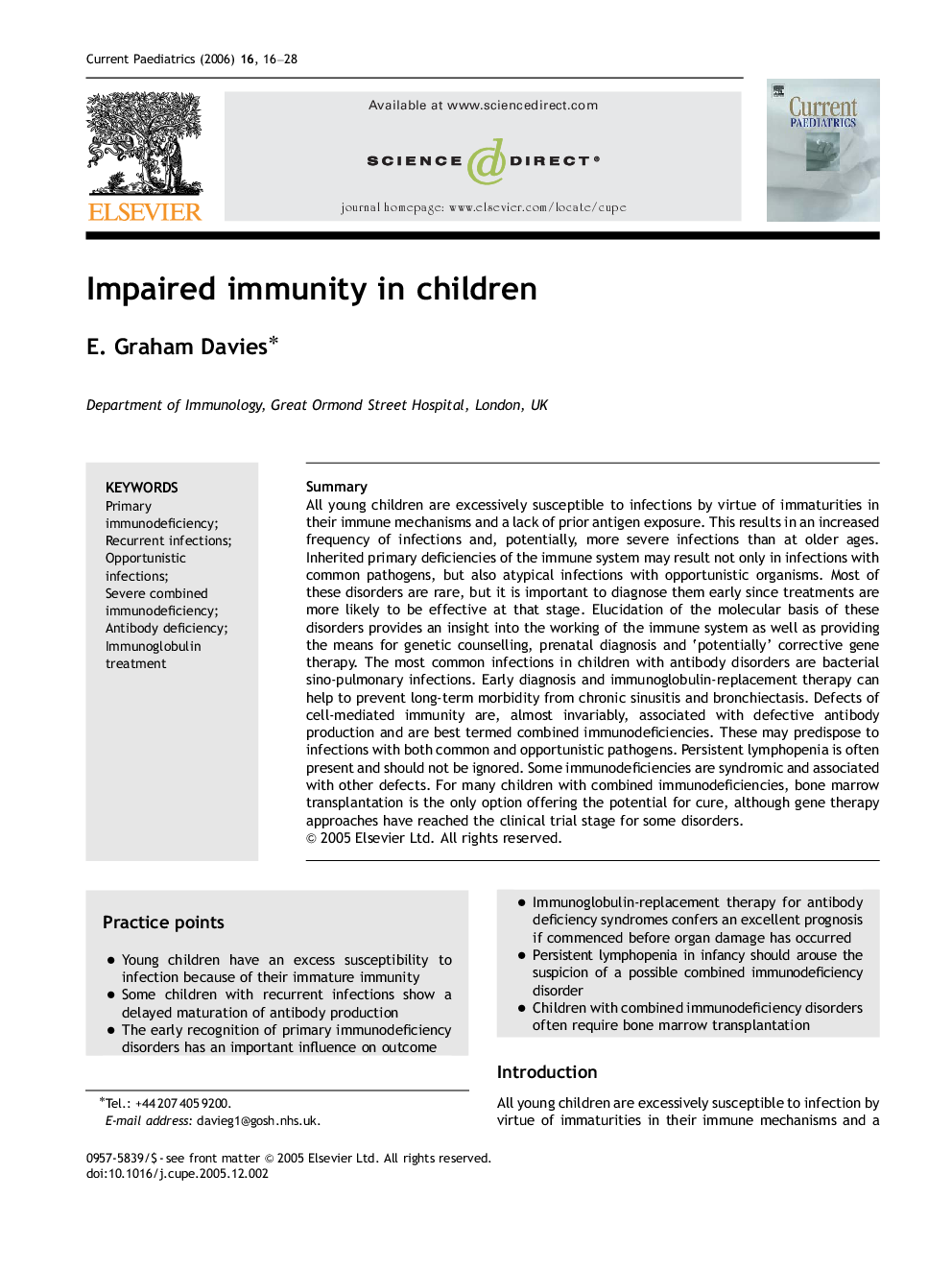| Article ID | Journal | Published Year | Pages | File Type |
|---|---|---|---|---|
| 4152310 | Current Paediatrics | 2006 | 13 Pages |
SummaryAll young children are excessively susceptible to infections by virtue of immaturities in their immune mechanisms and a lack of prior antigen exposure. This results in an increased frequency of infections and, potentially, more severe infections than at older ages. Inherited primary deficiencies of the immune system may result not only in infections with common pathogens, but also atypical infections with opportunistic organisms. Most of these disorders are rare, but it is important to diagnose them early since treatments are more likely to be effective at that stage. Elucidation of the molecular basis of these disorders provides an insight into the working of the immune system as well as providing the means for genetic counselling, prenatal diagnosis and ‘potentially’ corrective gene therapy. The most common infections in children with antibody disorders are bacterial sino-pulmonary infections. Early diagnosis and immunoglobulin-replacement therapy can help to prevent long-term morbidity from chronic sinusitis and bronchiectasis. Defects of cell-mediated immunity are, almost invariably, associated with defective antibody production and are best termed combined immunodeficiencies. These may predispose to infections with both common and opportunistic pathogens. Persistent lymphopenia is often present and should not be ignored. Some immunodeficiencies are syndromic and associated with other defects. For many children with combined immunodeficiencies, bone marrow transplantation is the only option offering the potential for cure, although gene therapy approaches have reached the clinical trial stage for some disorders.
